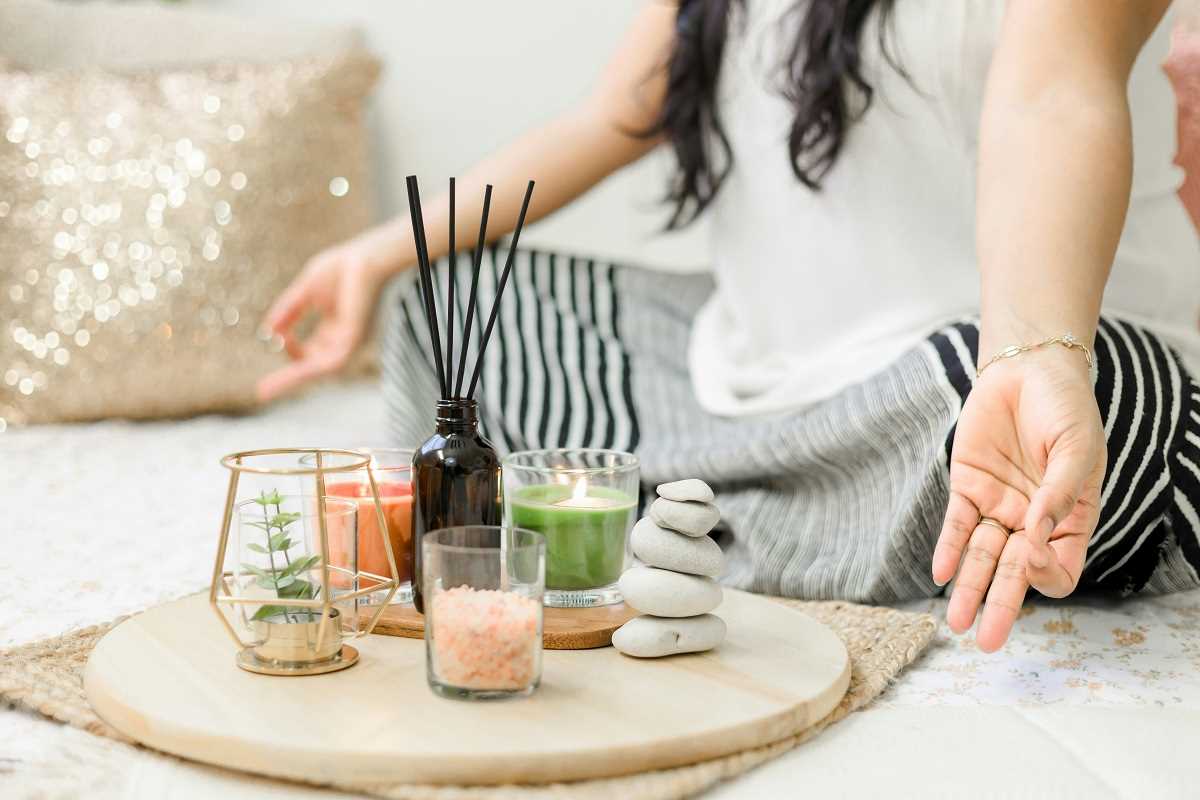Aromatherapy, the art and science of using naturally extracted aromatic essences from plants to promote health and well-being, has been practiced for centuries. Whether used for relaxation, healing, or rejuvenation, aromatherapy offers a holistic approach to wellness that can easily be integrated into daily life.
This guide will walk you through the basics of aromatherapy, including its history, how it works, its benefits, and how to safely and effectively incorporate it into your wellness routine.
A Brief History of Aromatherapy
Aromatherapy has ancient roots that trace back to the civilizations of Egypt, China, and India, where essential oils were used for religious ceremonies, medicinal purposes, and beauty treatments.
The term "aromatherapy" was coined in the early 20th century by French chemist René-Maurice Gattefossé, who discovered the healing properties of lavender oil after applying it to a burn.
Since then, the practice has evolved, blending traditional wisdom with modern scientific research to enhance its credibility and application in contemporary wellness practices.
How Aromatherapy Works
Aromatherapy primarily works through the sense of smell and skin absorption.
When inhaled, the aroma of essential oils stimulates the olfactory system, the part of the brain connected to smell, which can influence emotions, mood, and cognitive function. This process can trigger the release of chemicals that help calm or energize the body, depending on the oil used. If absorbed through the skin, essential oils can provide localized benefits or travel through the bloodstream to target specific systems in the body.
Benefits of Aromatherapy
Aromatherapy offers a multitude of potential benefits, including:
- Stress Relief and Relaxation: Scents like lavender, chamomile, and bergamot are known for their calming effects, helping to reduce stress and anxiety.
- Improved Sleep: Oils such as lavender and marjoram can promote restful sleep by creating a calming environment.
- Enhanced Mood and Energy: Citrus oils like lemon and orange can uplift the mood and boost energy levels.
- Pain Management: Peppermint and eucalyptus oils can be effective in relieving headaches and muscle pain.
- Immune Support: Tea tree and eucalyptus oils have antimicrobial properties that can support immune health.
Popular Essential Oils and Their Uses
- Lavender: Known for its calming and relaxing properties, lavender is often used to promote sleep and reduce stress.
- Peppermint: With its invigorating scent, peppermint is ideal for boosting energy and relieving headaches.
- Tea Tree: Valued for its antiseptic properties, tea tree oil is commonly used to treat skin ailments.
- Eucalyptus: Known for its respiratory benefits, eucalyptus can help relieve congestion and improve breathing.
- Lemon: With its fresh, uplifting aroma, lemon oil can enhance mood and support immune function.
Methods of Application
- Inhalation: Using a diffuser is a popular method for dispersing essential oils into the air. Alternatively, a few drops can be added to a bowl of hot water for steam inhalation.
- Topical Application: Essential oils can be diluted with a carrier oil, such as coconut or jojoba oil, and applied directly to the skin for localized benefits.
- Baths: Adding a few drops of essential oil to your bathwater can enhance relaxation and provide skin benefits.
- Massage: Incorporating essential oils into a massage can help relieve muscle tension and promote relaxation.
Safety Considerations
While essential oils offer many benefits, it's crucial to use them safely:
- Dilution: Always dilute essential oils with a carrier oil before applying them to the skin to prevent irritation.
- Patch Test: Perform a patch test by applying a small amount of diluted oil to your skin to check for allergic reactions.
- Quality: Choose high-quality, pure essential oils from reputable sources to ensure safety and effectiveness.
- Consult a Professional: If pregnant, nursing, or under medical care, consult a healthcare professional before using essential oils.
Tips for Beginners
Begin with a few versatile oils, such as lavender, peppermint, and lemon, and gradually expand your collection as you become more comfortable. Combine different oils to create unique blends that suit your personal preferences and wellness goals.
Incorporate aromatherapy into your daily routine, whether it's using a diffuser during your morning meditation or adding oils to your evening bath.
Stay up-to-date with the latest research on aromatherapy.
Aromatherapy is a powerful tool for enhancing wellness, offering a natural and holistic approach to improving mental, emotional, and physical well-being. By understanding the basics of aromatherapy and incorporating essential oils safely into your routine, you can harness their benefits to support a healthier, more balanced lifestyle.
Whether you're seeking stress relief, improved sleep, or a mood boost, aromatherapy can be a delightful addition to your wellness toolkit.







